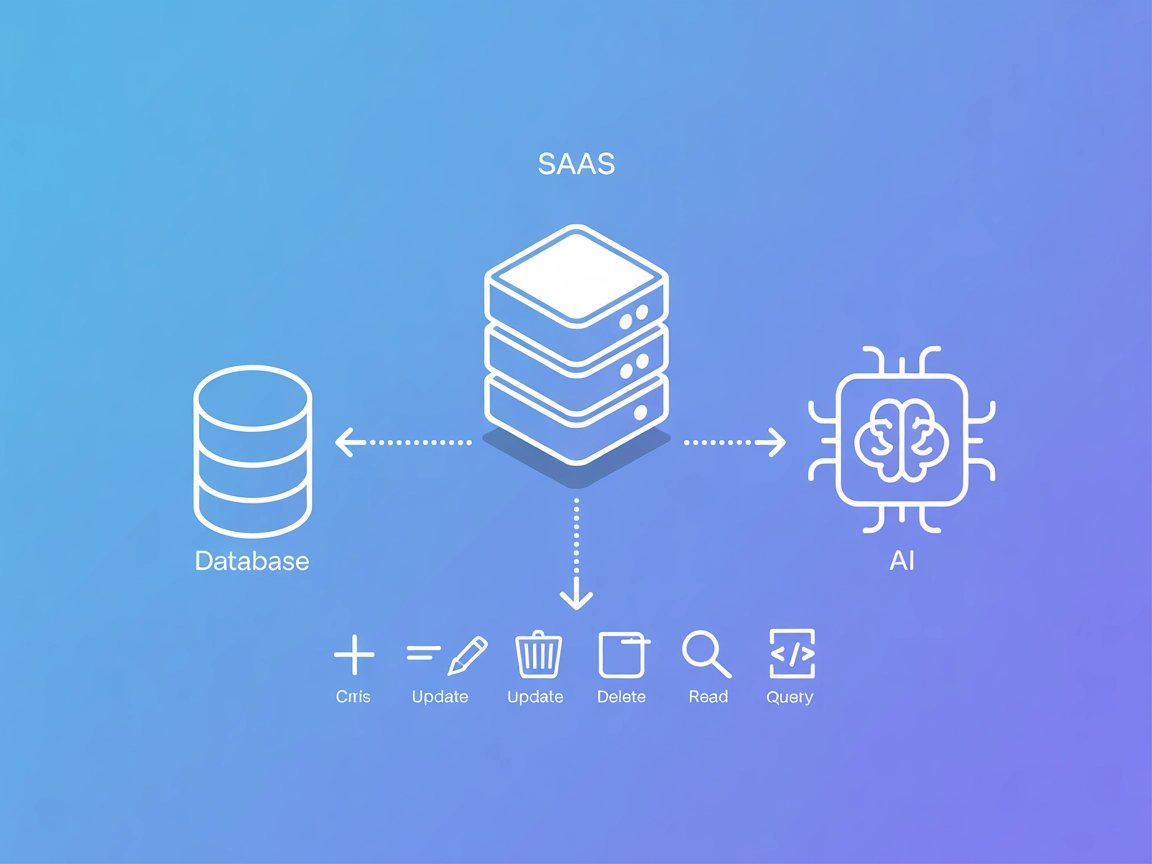
ModelContextProtocol (MCP) Server Integration
The ModelContextProtocol (MCP) Server acts as a bridge between AI agents and external data sources, APIs, and services, enabling FlowHunt users to build context...

Bridge your FlowHunt AI agents to databases and external services using Quarkus MCP Server for powerful, automated workflows and real-world data access.
FlowHunt provides an additional security layer between your internal systems and AI tools, giving you granular control over which tools are accessible from your MCP servers. MCP servers hosted in our infrastructure can be seamlessly integrated with FlowHunt's chatbot as well as popular AI platforms like ChatGPT, Claude, and various AI editors.
The Quarkus MCP (Model Context Protocol) Server is a collection of servers implemented in Java using the Quarkus MCP server framework. Its main purpose is to extend the capabilities of MCP-enabled large language model (LLM) AI applications by connecting them to external data sources, APIs, or services. By running these servers, developers can enable tasks such as database queries, file management, or integrating with various systems directly from their AI assistants. This enhances development workflows by allowing LLMs to interact with real-world data and services, making it easier to automate, manage, and streamline operations within AI-powered applications. The Quarkus MCP servers are compatible with multiple environments and can be easily integrated into MCP-enabled clients such as Claude Desktop and others.
No information about prompt templates is provided in the repository.
No explicit resource definitions are provided in the repository documentation.
No direct listing or description of tools in server.py or equivalent files is found in the provided content. However, the JDBC server is mentioned for database interactions.
jbang, they can be used in various environments (Java, JavaScript, Python, etc.), offering flexibility for different development stacks.mcpServers object with a JSON snippet.Example JSON configuration:
{
"mcpServers": {
"quarkus-jdbc": {
"command": "jbang",
"args": ["jdbc@quarkiverse/quarkus-mcp-servers"]
}
}
}
Securing API Keys:
{
"mcpServers": {
"quarkus-jdbc": {
"command": "jbang",
"args": ["jdbc@quarkiverse/quarkus-mcp-servers"],
"env": {
"JDBC_URL": "your_jdbc_url",
"JDBC_USER": "${env:DB_USER}",
"JDBC_PASSWORD": "${env:DB_PASSWORD}"
},
"inputs": {}
}
}
}
Example JSON configuration:
{
"mcpServers": {
"quarkus-jdbc": {
"command": "jbang",
"args": ["jdbc@quarkiverse/quarkus-mcp-servers"]
}
}
}
mcpServers section.Example JSON configuration:
{
"mcpServers": {
"quarkus-jdbc": {
"command": "jbang",
"args": ["jdbc@quarkiverse/quarkus-mcp-servers"]
}
}
}
Example JSON configuration:
{
"mcpServers": {
"quarkus-jdbc": {
"command": "jbang",
"args": ["jdbc@quarkiverse/quarkus-mcp-servers"]
}
}
}
Note: For all platforms, secure API keys and sensitive information using environment variables as shown above.
Using MCP in FlowHunt
To integrate MCP servers into your FlowHunt workflow, start by adding the MCP component to your flow and connecting it to your AI agent:

Click on the MCP component to open the configuration panel. In the system MCP configuration section, insert your MCP server details using this JSON format:
{
"MCP-name": {
"transport": "streamable_http",
"url": "https://yourmcpserver.example/pathtothemcp/url"
}
}
Once configured, the AI agent is now able to use this MCP as a tool with access to all its functions and capabilities. Remember to change “MCP-name” to whatever the actual name of your MCP server is (e.g., “github-mcp”, “weather-api”, etc.) and replace the URL with your own MCP server URL.
| Section | Availability | Details/Notes |
|---|---|---|
| Overview | ✅ | General description available |
| List of Prompts | ⛔ | Not found in the repository |
| List of Resources | ⛔ | Not found in the repository |
| List of Tools | ⛔ | No explicit list; JDBC server mentioned |
| Securing API Keys | ✅ | Shown via env configuration example |
| Sampling Support (less important in evaluation) | ⛔ | Not found in the repository |
Based on the above coverage, the Quarkus MCP Server repository offers a foundational overview, setup instructions, and security recommendations, but lacks explicit details on prompts, resources, and tools. The documentation is clear on how to run and integrate the servers, especially for database interactions, but is missing more advanced details that would help developers maximize its utility.
| Has a LICENSE | ✅ (Apache-2.0) |
|---|---|
| Has at least one tool | ✅ (JDBC server) |
| Number of Forks | 38 |
| Number of Stars | 142 |
Our opinion:
Given the documentation and available features, we would rate this MCP server repository a 6/10. It’s well-structured for basic usage and setup, but more detailed documentation on resources, prompts, and tools would further enhance its usefulness for developers.
The Quarkus MCP Server is a Java-based framework that lets you connect FlowHunt's AI agents to databases and external services, enabling automated data queries, management, and workflow integration via MCP.
You can connect to any JDBC-compatible database, including Postgres, MySQL, Oracle, Sqlite, and more.
Credentials such as JDBC URLs, usernames, and passwords should be provided as environment variables in your MCP server configuration to keep them secure.
The Quarkus MCP Server can be integrated with any MCP-enabled client, including FlowHunt, Claude Desktop, Windsurf, Cursor, and Cline.
No, the server can be run using prebuilt commands and configuration snippets. Java is only required for running the server, not for workflow design in FlowHunt.
Popular use cases include enabling LLM-powered database management, automating data analysis workflows, and integrating real-time external data into AI-driven processes.
Connect FlowHunt with Quarkus MCP Server to enable your AI workflows to interact with databases and external APIs, automating your business operations.

The ModelContextProtocol (MCP) Server acts as a bridge between AI agents and external data sources, APIs, and services, enabling FlowHunt users to build context...

The Couchbase MCP Server connects AI agents and LLMs directly to Couchbase clusters, enabling seamless natural language database operations, automated managemen...

The QGIS MCP Server bridges QGIS Desktop with LLMs for AI-driven automation—enabling project, layer, and algorithm control, as well as Python code execution dir...
Cookie Consent
We use cookies to enhance your browsing experience and analyze our traffic. See our privacy policy.